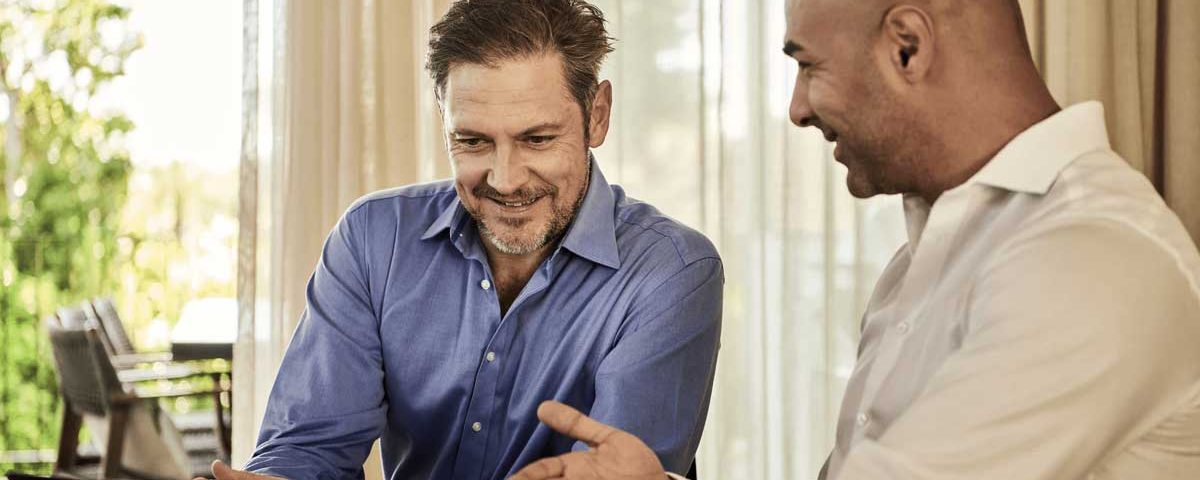Are you thinking about buying a business to build your future, gain personal financial freedom and independence but are not sure where and how to start? How do you get started and find the right business? What are the steps involved to find the best business for you?
Before you start your search, we suggest you step back and look at what types of businesses are for sale. It will surprise you how many different types of businesses there are. We also recommend keeping an open mind with respect to business types and looking at broad industries. Looking at a profitable business, with strong infrastructure, in an industry you have not considered may turn out to be the right business for you.
Steps in Buying a Business
1) Inquiry, NDA, Buyer Profile, & Initial Meetings
Most inquiries come from one of our Internet ads or our website for a business for sale we represent. To get detailed information about the business you will need to complete our NDA (Non-Disclosure Agreement) and Buyer Profile. One of the biggest concerns for business owners regarding the sale of their business is maintaining confidentiality about the prospective sale of their business. To ensure the name of the company and information about it remains confidential, we require a signed Confidentiality Agreement and Buyer Profile prior to providing any detailed information about the company. The Buyer Profile provides us with a snapshot of your financial position, credit score, available cash for down payment and purchase, background, and experience.
After receipt of your signed NDA and completed Buyer Profile, we send you the Confidential Information Memorandum (CIM).
2) Confidential Information Memorandum (CIM) & Initial Meetings
Our Confidential Information Memorandum (CIM) is comprehensive and includes an overview of the business, its products-services, last 3 years’ financial statements, equipment list, staff list, and other information about the business.
After you have reviewed the CIM we arrange a conference call with us to discuss the business, answer your questions, and learn more about your background and qualifications. After your initial call with us, we set up a Buyer–Seller meeting.
The Buyer–Seller Meeting is your opportunity to learn more about the business and the Owner, as well as the Seller’s opportunity to learn more about you. Sellers are very interested in the Buyer’s background and qualifications and this is an important aspect of your first meeting.
In your first meeting with the Seller, we highly recommend being well prepared and focusing on learning about how the business operates, the owner’s role, key staff, company products-services, etc. There are generally multiple Buyer–Seller Meetings before an offer is made. The first meeting usually has general questions, followed by a second meeting where we get into more details. General questions about the financial statements are appropriate in the first meeting, however, detailed questions about the financial statements are more appropriate for later meetings or in some cases Due Diligence after an offer has been accepted.
3) Prepare Offer & Offer Acceptance
The next step is to prepare an offer. You may utilize an LOI or purchase agreement. Our office offers representation to assist with preparation of the offer. A written representation agreement and acknowledgement of disclosures is required if you would like us to represent you as a buyer.
Your offer will have 3 primary contingencies, 1) successful completion of Due Diligence review, 2) obtaining a satisfactory new lease or assignment of the current lease, and 3) SBA financing approval and funding.
Offers are seldom accepted as-is, even if they are excellent offers. Obviously, price is the most common negotiating point and frequently terms need to be refined or clarified. We facilitate The negotiations and prepare the counter offer and amendments to reach a mutually acceptable offer. When the offer and counteroffer have been signed by all parties we have a contingent purchase agreement and begin due diligence.
4) Buyer Due Diligence
Due Diligence, along with the offer and negotiations, is one of the most critical steps in buying a business. Due Diligence is a Contingency for both Buyer and Seller and a critical milestone. During Due Diligence, the Buyer verifies the revenue, expenses, earnings, and financial wherewithal of the business. You will have access to all of the company’s financial records, bank statements, tax returns, and other documentation. There is also Seller Due Diligence where the Seller reviews the Buyer’s qualifications, financial position, and overall capabilities.
At the conclusion of Due Diligence Buyer and Seller remove the Due Diligence Contingency and escrow is opened. If either party is unsatisfied with their Due Diligence review then there are three options 1) resolve the issues or questions that arose during Due Diligence, 2) Return the Buyer’s earnest money deposit as specified in the Purchase Agreement and terminate the agreement, or 3) renegotiate the Purchase Agreement based on the new findings or facts.
5) Escrow
After Due Diligence is complete, and both Buyer and Seller have removed this Contingency in writing, escrow is ready to be opened. Note that other contingencies such as bank financing and Lease contingency will still be open. Escrow will draft the escrow instructions, cash the Buyer Deposit Check, and open escrow once the escrow instructions are signed by all parties. During escrow, the Escrow officer will run lien searches, publish the Notice To Creditors, obtain releases from tax authorities including the Franchise Tax Board, Dept of Tax & Fees (sales tax-seller’s permit), EDD, etc. The escrow officer will send information requests to the Buyer and Seller during the escrow and documents for signature.
6) SBA Financing
The SBA lender approval process takes a minimum of 60 days if the buyer and seller promptly send all requested information to the bank. Frequently SBA Loans can take up to 90 days from the time of submission. Consequently, we typically start the SBA lender approval process before escrow is opened. The SBA Lender (Bank) will require information from both buyer and seller in order to approve the loan. This will include 3 years of financial statements and tax returns from the Buyer and Seller, a Personal Financial Statement and resume from Buyer, and other information. A new or assigned Lease in the name of the Buyer is required prior to the close of escrow. We recommend introducing the Buyer to the Landlord as early as possible after escrow is opened to give the Landlord adequate time to review the Buyer’s application and prepare a new lease or assignment of lease. Note that if an SBA loan is involved the bank may require a 10-year Lease including options. In some cases, this can be waived if the location is not critical or unique to the business. Any required licenses will need to be obtained by The Buyer before escrow can close.
7) Closing & Training
The close of escrow (COE) and change of possession (COP) occurs when escrow has completed the lien searches, Notice To Creditors, obtained releases from tax authorities, including Franchise Tax Board, Dept of Tax & Fees, and EDD, and when bank funding is ready (if third party financing is being used). The new or assigned Lease must be ready prior to the close of escrow.
Most Purchase Agreements include 30 days of training by the Seller included with the purchase price of the business. In some cases this may be longer, but rarely is it shorter as the Buyer needs sufficient time to learn the business. In instances where the business is complex such as construction contractors, manufacturing, technical businesses, etc a longer training period may be required. In these cases, a consulting agreement is often negotiated where the Seller agrees to stay as a consultant for a specified period of time with mutually agreed compensation.

For more about how to buy a business preview my book, “Own Your Future, Straight Talk about Buying a Business and Building Your Future.”

